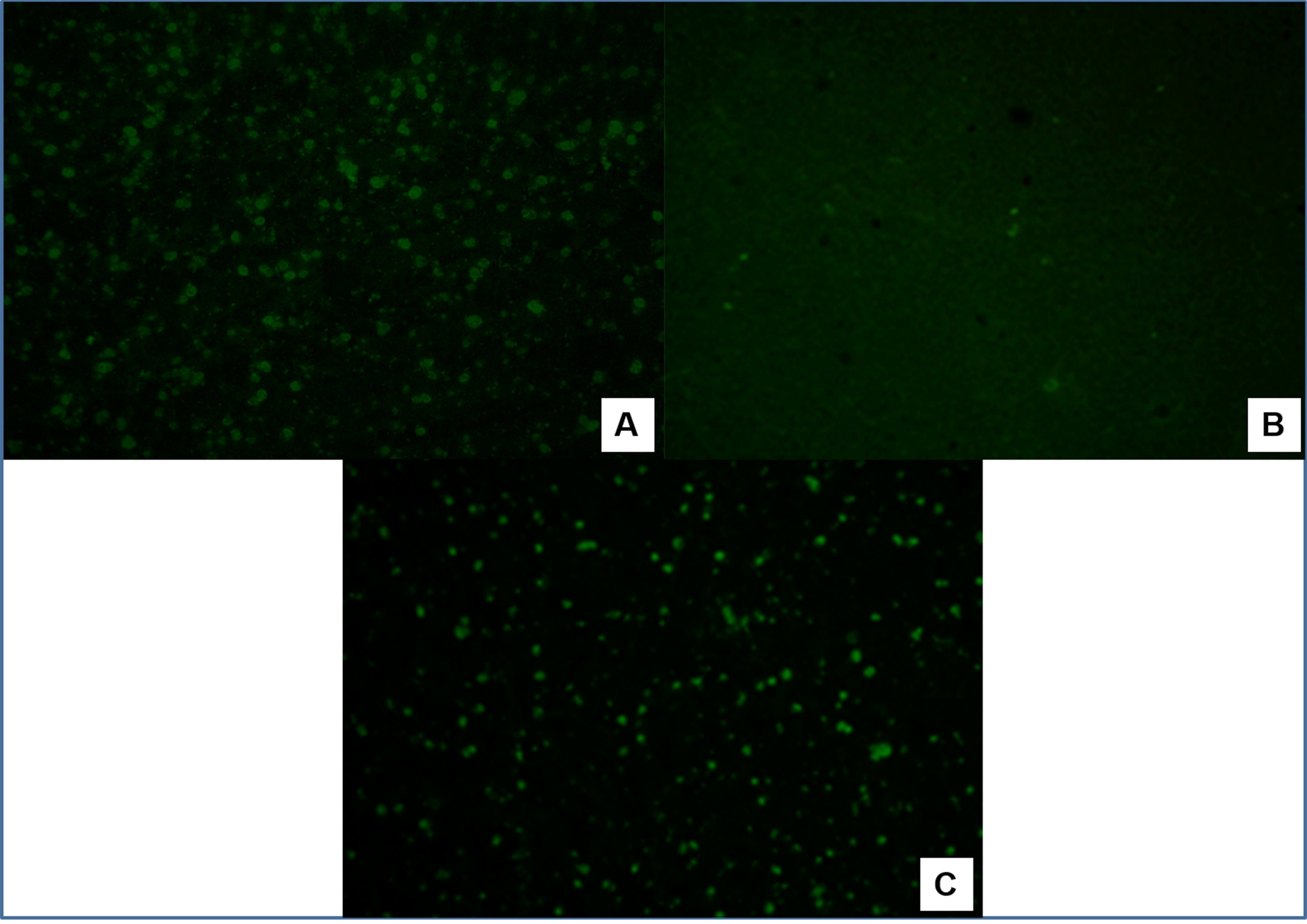Abstract
The aim of this study was to identify Plasmodium spp. in blood samples from nonhuman primates (NHPs) in the state of Maranhão, using classical and alternative techniques for examination of human malaria. A total of 161 blood samples from NHPs were analyzed: 141 from captive animals at a Wildlife Screening Center (CETAS) and 20 from free-living animals in a private reserve. The techniques used were microscopy, rapid diagnostic test (RDT), Indirect fluorescent antibody test (IFAT) and molecular techniques (semi-nested PCR, quantitative real-time PCR and LAMP). Two serological methods (dot-ELISA and indirect ELISA) were also standardized with rhoptry protein-soluble antigen of P. falciparum and P. berghei. Trophozoite forms of Plasmodium sp. were identified on slides from five different animals. No samples were positive through RDT and LAMP. Four samples were seropositive for P. malariae through IFAT. The samples showed low reactivity to ELISA. Plasmodium sp. was detected in 34.16% (55/161) of the samples using qPCR based on the 18S rRNA gene. After sequencing, two samples showed 100% identityl to P. malariae, one showed 97% identity to Plasmodium sp. ZOOBH and one showed 99% identity to P. falciparum . PCR was shown to be the most sensitive technique for diagnosing Plasmodium in NHP samples.
Keywords:
Simian malaria; New World monkeys; Plasmodium brasilianum; Plasmodium malariae; 18S rRNA; zoonosis

 Thumbnail
Thumbnail
 Thumbnail
Thumbnail
 Thumbnail
Thumbnail
 Thumbnail
Thumbnail
 Thumbnail
Thumbnail
 Thumbnail
Thumbnail
 Thumbnail
Thumbnail
 Thumbnail
Thumbnail







